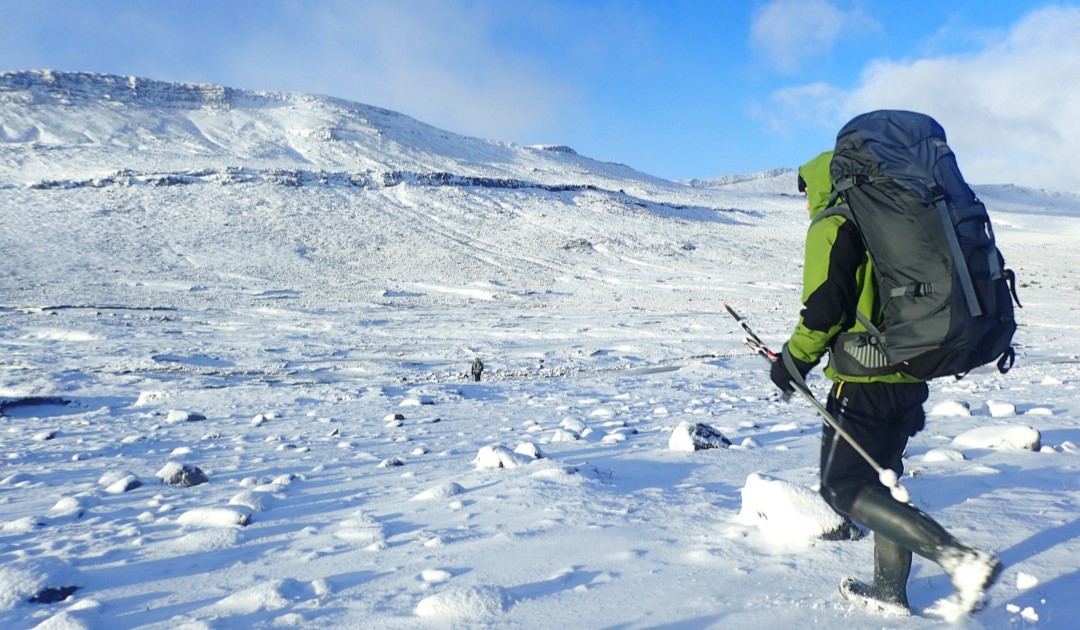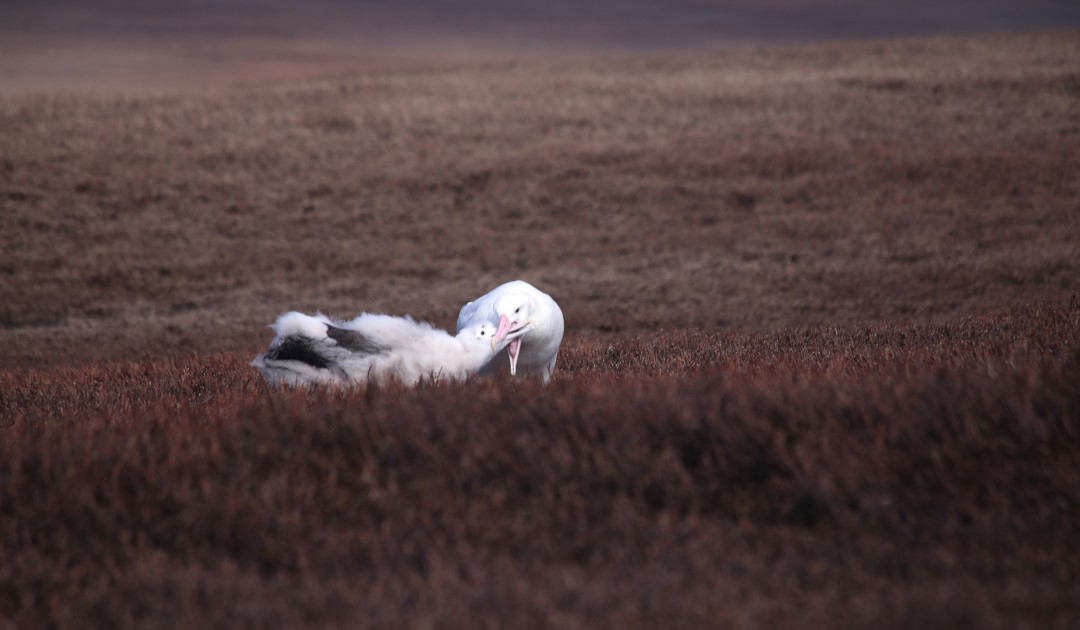
As winter draws to a close in the French Southern and Antarctic Lands, volunteers from the French Polar Institute are turning against their organization. They denounce the precariousness of their Volontariat de Service Civique (VSC) and the excessive working hours. This very special situation reflects the lack of human and financial resources for polar research, as well as a widespread contract that is probably badly adapted to the needs of young people at the start of their careers who do not have access to the Revenu de Solidarité Active. The Institute’s immediate room for manoeuvre is limited, with no other option than management from a distance.
There’s trouble brewing in the French Southern and Antarctic Lands (TAAF). Since last Tuesday, a group of 30 young people on a Volontariat de Service Civique (VSC) program have been denouncing a situation of “staff exploitation” and, with the help of a lawyer, are putting the French Polar Institute on notice. The words are strong. The case arose because they lost 9% of their compensation during the mission, following the Ursaff’s request to IPEV for retroactive payment of certain social security contributions (CSG and CRDS) from January onwards. The news arrived in Antarctica and the sub-Antarctic islands in June. It didn’t go down well, and since then the VSCs at the various bases have organized to protest.
“We’re talking to the VSCs to re-establish a peaceful relationship, so that they can finish their stay safely and legally, and be protected. We want them to be able to take advantage of the magical moment that is the end of wintering, to leave with memories that are not just about protest or legal action,” explains Yan Ropert-Coudert, Director of the French Polar Institute and a former winterer himself.

There are around thirty of them involved in bringing science to these territories, where researchers are studying the climate, animal and plant life, magnetism, the ionosphere… the list is long and the experience rich. Their presence in these territories means that observatories can be maintained over the long term. Polar stations are places where civilian and military personnel meet, the latter being seconded temporarily to maintain the site, provide transmissions or produce electricity from generators. Before their departure, the VSCs undergo training lasting from a few days to several weeks at the institute to understand the activities, bond the teams and maintain this spirit over the winter. That’s all taken care of.
As a result of this dispute over compensation, the VSCs are complaining about their working conditions. Too many hours to “carry out field missions lasting several weeks in a row without a day’s rest”, they declared in their press release. They feel they have too many responsibilities and duties that are outside the job description. In theory, the civic service contract should not be used for positions that guarantee the smooth running of an organisation. However, it is impossible to imagine a polar mission without essential personnel. Every member of the mission has a role to play and is recognised for it in his or her station.

These active young people supervise outings lasting around ten days, away from the bases (for the sub-Antarctic islands) where they are accompanied by military personnel and contract workers – a baker, cook or bricklayer, for example. They then live in huts at the end of the world to follow the life of the animals. To reach the penguin colonies, they sometimes have to walk for several days with a heavy rucksack. All this gives rise to special moments of exchange with other profiles.
In this context, it’s difficult to separate work time from personal time. The VSC contract involves working 35 hours a week, or exceptionally 48 hours, spread over six days. Their assignment can last up to 14 months. It’s already been more than 10 months since these young people made a voluntary break from their daily lives. They have formulated their grievances, contacted the press and 15 Members of Parliament.
What the Antarctic VSCs have said about the nature of their status can no doubt be generalised to all French VSCs. Even in the last 10 days, some of them have appeared in the headlines of the regional press, contributing to the life of a nursing home, a kindergarten or a chess club. Over the last 10 years, an average of more than 80,000 volunteers have been involved in causes of general interest in associations and public services every year. By 2021, the number of VSCs has almost doubled. Some of them say that they have taken on responsibilities but have not been sufficiently supervised, and that in the end the experience did not provide much in the way of added value.
But this does not mean that this type of commitment should be banned, as a group of associations pointed out in an article published in Le Monde in 2022. In their view, VSC “makes it possible to mobilise the vital forces of young people to help meet the social and environmental challenges of our time and gives young people the opportunity to come face to face with the diversity of our country, thereby strengthening the social cohesion that our country needs more than ever” and called for “a programming law providing for continuous, regular and sustainable development of the budget allocated to civic service”. According to them, 91% of VSCs are satisfied and 96% would recommend it to their friends and family, despite the precarious nature of the status.
In the TAAFs, VSCs receive 1,050 euros compared with around 500 euros elsewhere in France. They are provided with food and accommodation and live in parts of the world where very few people have the opportunity to travel. “We receive 600 to 700 applications a year, and there are people who dream of this, whatever the price,” says the director. They are far from their social circles, but also far from the difficulties of everyday life. The mission can sometimes seem long, but there are people to count on, with whom very strong bonds are created that will last over time. The experience has no real equivalent, which can sometimes be difficult to achieve while you’re still on a mission.

On this day of the equinox, the bases are emerging from the depths of winter. Summer is back and the next generation is approaching. Since Wednesday, they have agreed to work with us on areas for improvement,” adds Aude Sonneville, head of communications and archives at the French Polar Institute. “We can’t do anything about their status, but we can think about their missions, the training they receive before they start, equipment allocations that we may not have followed closely enough, and also staff shortages: we didn’t have a quality, safety and environment engineer until recently and our permanent staff at the Institute are passionate and overworked people who can’t manage everything.”
The French Polar Institute does not make a profit from these VSCs. In this respect, all the sciences that aim to study the climate or biodiversity, or the social sciences, are the poor cousins of research. In recent years, the French Polar Institute’s budgets have been tight, and this has been mechanically punished by inflation with the rising cost of raw materials, such as fuel to transport, live on, equipment and staff.
“I don’t know if we’re a channel for denouncing precarious situations, but we’re not the ones who have the upper hand on the status, and we’d like to be able to ensure that everyone is better paid,” says Aude Sonneville.
The dialogue is going well, despite the difficulties of communication. A time difference of three to nine hours depending on the station, and different realities between the field and the nerve centre. Even though Internet speeds have improved in recent years, facilitating exchanges with the metropolis via instant messaging, with its sometimes deleterious effects, in particular on the immediacy of exchanges and shorter times for reflection. Too much communication kills communication,” says Yan Ropert-Coudert, “I can see it in the research labs: we can now talk more easily, but that doesn’t mean we communicate any better.”
This event is causing unease both among the VSCs, who have not felt listened to, and among the French Polar Institute, which has few levers for action in the short term. It’s very difficult and unprecedented to have to charter a ship to evacuate staff who have abandoned their posts, and the next one won’t arrive until November. “I’m all for talking to the VSCs about the future of polar research and seeing how we can improve certain aspects, I always have been. But in my opinion, to discuss this calmly, they need to have time to finish their experiment,” adds the director.
This episode raises two questions: firstly, about the nature of the VSC contract in France and how it is used, and secondly, about how French polar research works. Does this mean that mission objectives should be revised downwards and that fewer people should be recruited at the start of their careers? Unless the French Polar Institute is able to open up 40 fixed-term contracts a year, over and above its current employment ceiling (which is currently impossible from a budgetary point of view), where young people would be less well represented. Or, could we not continue to give young people the opportunity to gain valuable experience on their CVs, and a rich human experience, by re-evaluating the status of VSC? The definition of these contracts should perhaps evolve and be upgraded, particularly in financial terms, taking into account the services rendered to the nation. A turning point that should in this case be played out in the Assembly.
Camille Lin, PolarJournal
Learn more about this topic:





